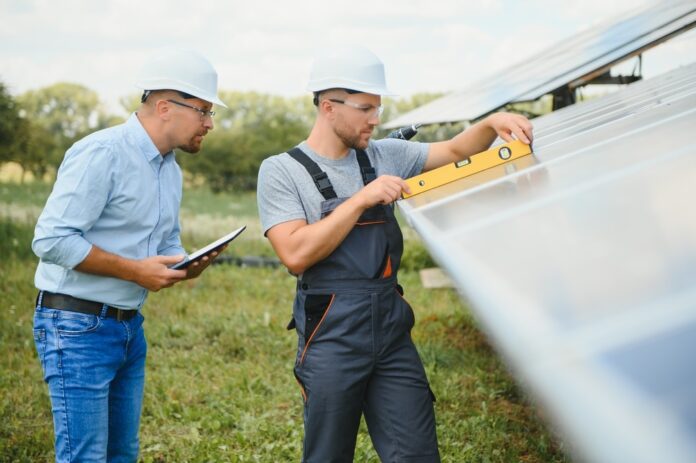Energy costs are fluctuating, and regardless of the short-term market, they’re not going to go down in the long run.
Given their sustainability and potential savings, it’s unsurprising that solar panels are becoming a popular way to reduce operational costs and improve your company’s green credentials. But that doesn’t mean that solar panels are definitely right for you. Making this decision takes a lot of thought, and you’ll want to consider the following 5 factors:
Cost of Installation
The upfront cost of solar panel installation is one of the biggest hurdles that your business will probably face. The average solar cost per kwh for installation is around $3, and depending on the size of your premises and energy requirements, that can translate to anywhere from a few thousand to hundreds of thousands of dollars for a complete solar panel system.
The cost of installing solar panels includes not just the panels themselves but also additional costs like permits and professional installation. If you’re considering solar energy, it’s well worth looking into available grants or tax incentives that your local government or authority might offer to reduce the upfront cost.
Long-Term Savings
Your potential savings are another big consideration when you’re deciding whether or not to install solar panels for your business. Solar panels will reduce your electricity bills, but the amount you can expect to save depends on a few things, including the cost of electricity in your area, the amount of sunlight your property gets, the size of the system you’ve installed, and your business’s energy usage patterns.
Over time, you should find that your solar panels pay for themselves through reduced energy costs. But to get the full long-term financial picture, you’ll need to compare the estimated savings against the upfront and ongoing maintenance costs.
Energy Requirements
Before you invest in solar panels, you need to assess how much of your business’s energy usage can be offset by solar power.
This depends on your business’ size and how many solar panels you get installed—in a best-case scenario, solar power will cover a large chunk of your energy needs, but it will probably only take a small figure off your monthly bill.
Property Suitability
Not all buildings are suitable for solar panel installation. The orientation, size, and condition of your roof will play a big part in how much energy you can generate. Ideally, you’ll have a south-facing roof with minimal shading, but ground-mounted systems can also be an option if your roof space is limited.
If you rent out your premises, you’ll need to get permission from your landlord to install solar panels.
Maintenance and Lifespan
Finally, to get a better picture of the total investment, make sure to consider the maintenance requirements of solar panels before you spend your money.
The good news is that solar panels require minimal maintenance, but they’re not maintenance-free. The system will need regular cleaning and inspections to keep it running efficiently.
Final Word
Solar panels are a big investment, but they have the potential to bring substantial financial and environmental benefits. But the suitability of solar panels for your business depends on your individual situation.
That’s why it’s important to weigh up the costs, energy requirements, and potential returns of a solar panel system before you make a decision either way.
Find a Home-Based Business to Start-Up >>> Hundreds of Business Listings.















































